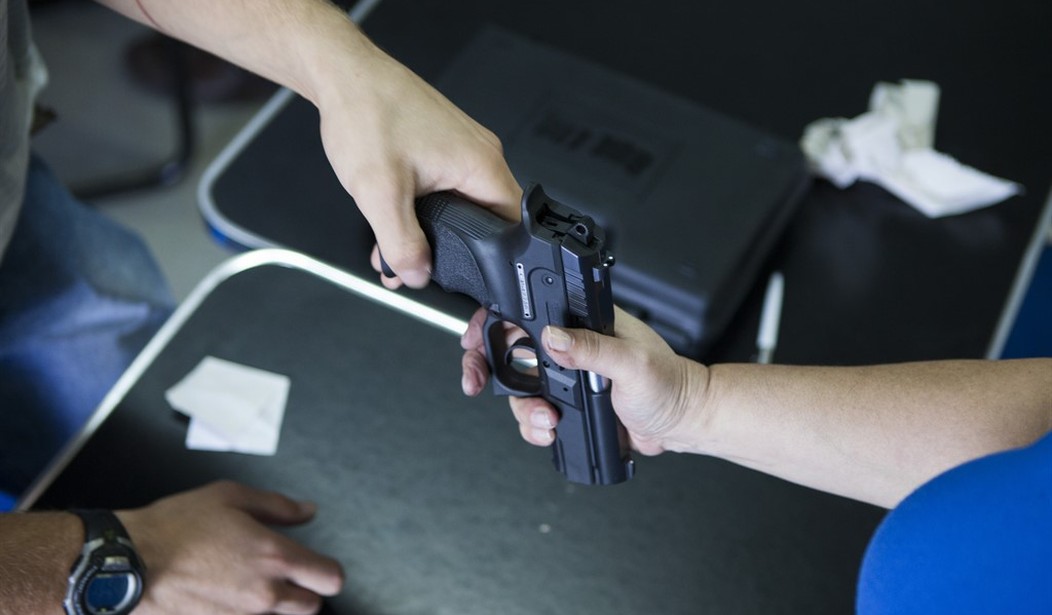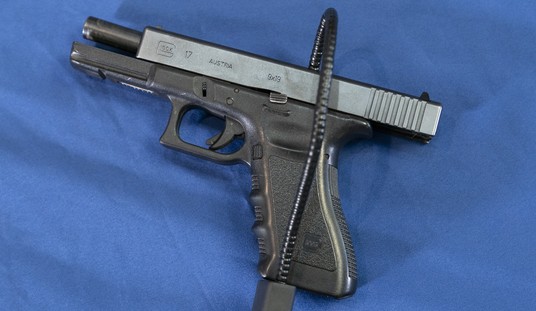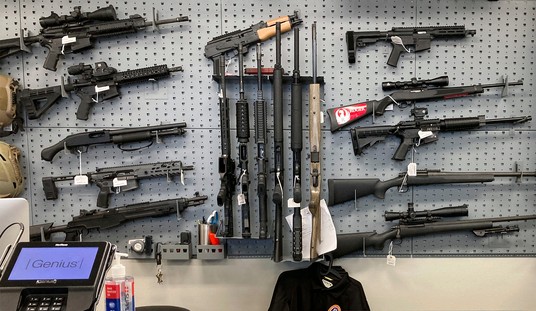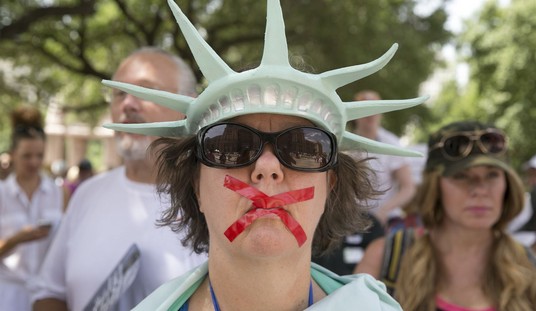It’s not a theoretical question. Instead, it’s at the heart of a lawsuit heard by the Seventh Circuit Court of Appeals on Thursday, and the case could ultimately have implications for hundreds of thousands of foster parents and in-home childcare providers across the country.
At issue is a state law in Illinois that requires all foster parents and at-home daycare operators to store their firearms in “a disassembled state, without ammunition, in locked storage, inaccessible to children and that ammunition permitted on day care home premises shall be kept in locked storage separate from that of disassembled firearms, inaccessible to children.” While the statute doesn’t ban firearms possession outright, it does require that any and all guns in the home are rendered useless for self-defense; a provision that the Supreme Court found unconstitutional when applied to the general public in Heller v. D.C.. That decision not only threw out the District’s ban on handguns but its virtually identical storage requirement as well, and an Illinois couple have been trying for almost five years to get the Illinois law overturned, with the case now edging closer to potential Supreme Court review.
The couple, Jennifer and Darin Miller, have raised two foster children. Jennifer is also licensed to run a day care out of their family home in Shelbyville, Illinois, about an hour southeast of the state capital Springfield.
…
Hoping to overturn these restrictions, the Millers sued the DCFS in federal court in April 2018. They were backed by the Washington-based Second Amendment Foundation, the Illinois State Rifle Association and the gun rights nonprofit group Illinois Carry.
Four years of litigation later, a federal judge in the Central District of Illinois threw their case out in March 2022.
“A number of courts have held or implied that the presence of children militates in favor of a given place being ‘sensitive,'” U.S. District Judge Sue Myerscough wrote. The Barack Obama appointee found that, per the U.S. Supreme Court’s 2008 ruling in the gun rights case District of Columbia v. Heller, foster homes and home day care centers are places where more strict gun control measures are warranted.
“The fact that day cares are designated spaces for the care of young children is a powerful indicator that they may be ‘sensitive places,’ Myerscough opined. “Moreover, a ban on firearms in day cares is closely analogous to a ban on firearms in schools, which is one of the core ‘presumptively lawful’ measures referenced in Heller.”
The Millers filed for an appeal about 10 days after Myerscough gave summary judgment to the Illinois DCFS. On Thursday, their attorney Joe Masterman with Cooper & Kirk told a three-judge Seventh Circuit panel that it was the state’s burden to show how the day care and foster care gun restrictions fit within the history of gun regulation in the U.S.. It is a burden, he argued, that the state has failed to meet.
“The state does not identify a single historical law that restricts firearm possession by adults, in their private homes, in order to prevent children from accessing those firearms,” Masterman said.
The state of Illinois’ argument is that daycare centers (and foster homes) are the equivalent of schools, which the Supreme Court has said are “sensitive places” that have historically been off-limits to firearm possession.
“All three facilities are facilities that revolve around the care, education and protection of children. They are licensed and overseen by the state; when children are there the state licensees are responsible for their care in a sort of in loco parentis setup,” [Illinois Deputy Solicitor General Sarah] Hunger said. “That is a straightforward application of Bruen and this court should affirm on that basis alone.”
The problem with Hunger’s argument is that these aren’t just licensed facilities; they’re also someone’s home. And the Illinois statute doesn’t declare that these facilities are true “sensitive places” where guns are banned outright; instead it imposes a storage requirement, which suggests that lawmakers may not have believed they had the authority to completely prohibit the possession of all firearms on the premise of a licensed foster home or in-home daycare. The problem is that the storage requirement makes using a firearm in self-defense (or defense of the children under the care of the gun owner) virtually impossible; something SCOTUS has squarely declared is unconstitutional.
Interestingly, for many years Texas had the same requirement that Illinois is currently defending in court, but Republican legislators changed the storage mandate in one crucial way back in 2021.
“Under current law, parents who wish to be foster parents and a gun owner must choose between storing their firearms and their ammunition separately, meaning the gun is separately locked and the ammunition is separately locked in separate locations, or storing them with a trigger guard on the firearm,” said the bill’s Senate sponsor, State Sen. Brian Birdwell (R–Granbury).
“These provisions burden a Texan’s right to self-protection, particularly in an immediate-need situation, and consequently discourage individuals from becoming or remaining foster parents,” he said.
“The minimum standards [of the Human Resources Code] must allow firearms and ammunition to be stored together in the same locked location,” the bill reads.
The Senate approved the proposed law on a mostly party-line vote of 20-11. All Democrat senators except for State Sen. Eddie Lucio (San Benito) opposed the bill.
“While foster parents are still legally obliged to safely store their firearms and ammunition under this legislation, they’re no longer required to store the firearm locked separate from the ammunition,” concluded Birdwell.
“Our state is always in need of willing and capable foster parents, and HB 1387 extends the existing right of most Texans to be foster parents, ensuring there are fewer barriers facing qualified individuals ready to help our children.”
From a pragmatic perspective that seems to be a fairly reasonable middle ground (Texas has also clarified that foster parents with concealed carry licenses can have their firearm and their foster kids with them while they’re in a car), but as it turns out the vast majority of states have laws in place that look more like the one in Illinois than the reformed version in Texas, so this is definitely a case with national implications, even if the Seventh Circuit’s decision won’t legally apply outside the boundaries of the appeals court. If the court rules that Illinois’ law is fine because you give up your Second Amendment rights when you sign up to be a foster parent or provide childcare in your home, we can expect a push in states like California and New York to ban gun ownership outright for everyone in those categories; once again trying to do everything they can to criminalize a fundamental civil right.
Heck, we may even see that come to pass if the Seventh Circuit sides in favor of the Millers, given the massive resistance to the right to keep and bear arms embraced by Democratic governors from Gavin Newsom to Phil Murphy. The end result would be fewer foster parents and daycare providers, exacerbating a shortfall that already exists. Yes, gun owners would be harmed by these policies, but it would be the kids in need of foster parents who’d suffer the most.
You may choose to become a foster parent or daycare provider rather than having that responsibility forced on to you, but you shouldn’t have to forfeit any of your fundamental civil liberties in order to do so. The state might very well have the authority to regulate the conditions of licensed childcare facilities and foster homes, but that doesn’t mean it has the power to impose requirements that violate your individual rights. In my opinion, the Illinois law (and the many others across the country) should be thrown out and the statutes should be rewritten to comport with the Second Amendment rights of these gun owners, but I don’t wear a robe or get to use a gavel for my job. We’ll have to wait a few months to see if the at least two of the three Seventh Circuit judges who heard oral arguments this week agree… and unfortunately even longer for the Supreme Court to get the opportunity to weigh in.










Join the conversation as a VIP Member